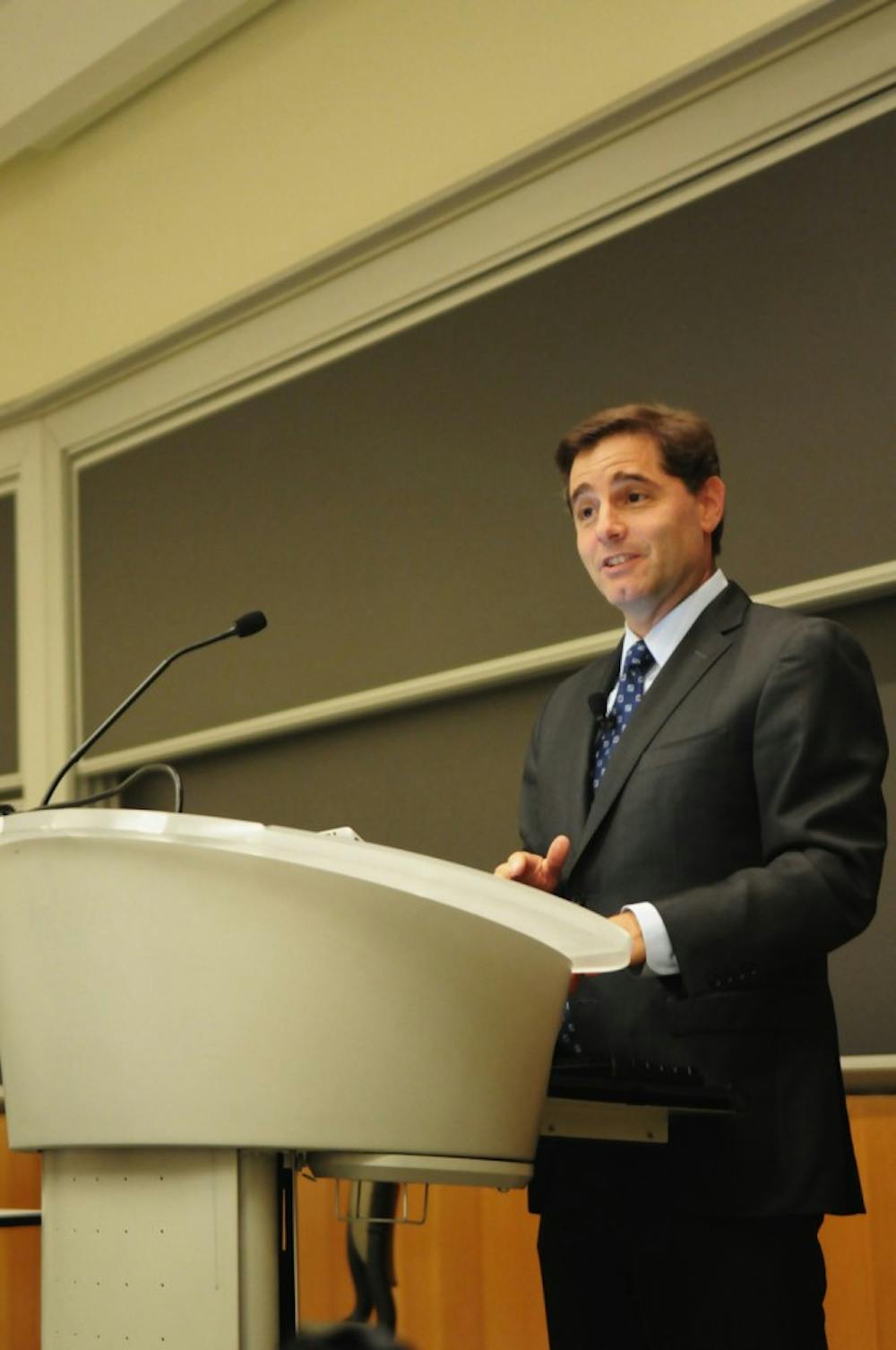About 100 Penn students and professors took a break from classes Thursday to delve deep into the future of wireless communications.
Federal Communications Commission Chair Julius Genachowski spoke in Huntsman Hall about his agency’s work in mobile communications. The event was organized by Wharton professor Kevin Werbach and second-year MBA student Shomik Dutta.
Both Werbach and Dutta have previously worked with Genachowski on FCC initiatives. The FCC is a large federal agency devoted to the regulation of the telecommunications industry.
“We are in a global bandwidth race,” Genachowski told the audience. “And much like the space race in the 20th century, success in this race will … go a long way toward determining who leads the global economy in the 21st century.”
He identified the key to winning the race as expanding national coverage and access to a network that is “fast, high-capacity and ubiquitous,” providing the bandwidth that people need when and where they need it.
However, Genachowski noted that this “strategic bandwidth advantage” actually creates its own obstacle — the “spectrum crunch.”
The spectrum crunch, he explained, refers to the looming possibility that the available space for mobile data in the country will one day run out. To address this, the FCC implemented “incentive auctioning” — a process by which under-utilized broadband is sold off to companies that will make more efficient use of it, freeing up data space.
Genachowski’s entire career so far has been marked by similarly bold innovations, which the event organizers discussed in their introductions Thursday.
Since being appointed FCC chair in 2009 by President Barack Obama, his old Harvard Law School friend, Genachowski has pursued programs and initiatives aimed at opening the communications market. Dutta believes that his appointment to the FCC serves a testament to Obama’s ability to attract “some of the brightest stars from the private sector.”
Before he came to the FCC, Genachowski worked in the private sector at organizations like internet company InterActiveCorp, private equity firm General Atlantic and technology incubator LaunchBox Digital, which he co-founded.
For some, the event’s turnout was a pleasant surprise, given the highly technical nature of the topic.
“A lot of the issues being discussed here are technical and arcane,” Wharton professor Peter Fader said. “To see students here and engaged — it’s a really good sign.”
Indeed, for many students, the event marked their first-ever encounter with the material.
“It was really informative … [even though] I don’t really know anything about spectrum,” second-year MBA student Erik Philipp said. “It seems like they’re doing a very good job of managing the spectrum in a way that gives healthy growth in that area for the industry.”
“You don’t really often hear about how the government is being innovative … especially in technology policy,” Wharton freshman Marisa Rackson added. But the FCC is “still taking the initiative to do [these things], and I think that’s really interesting — really positive.”



